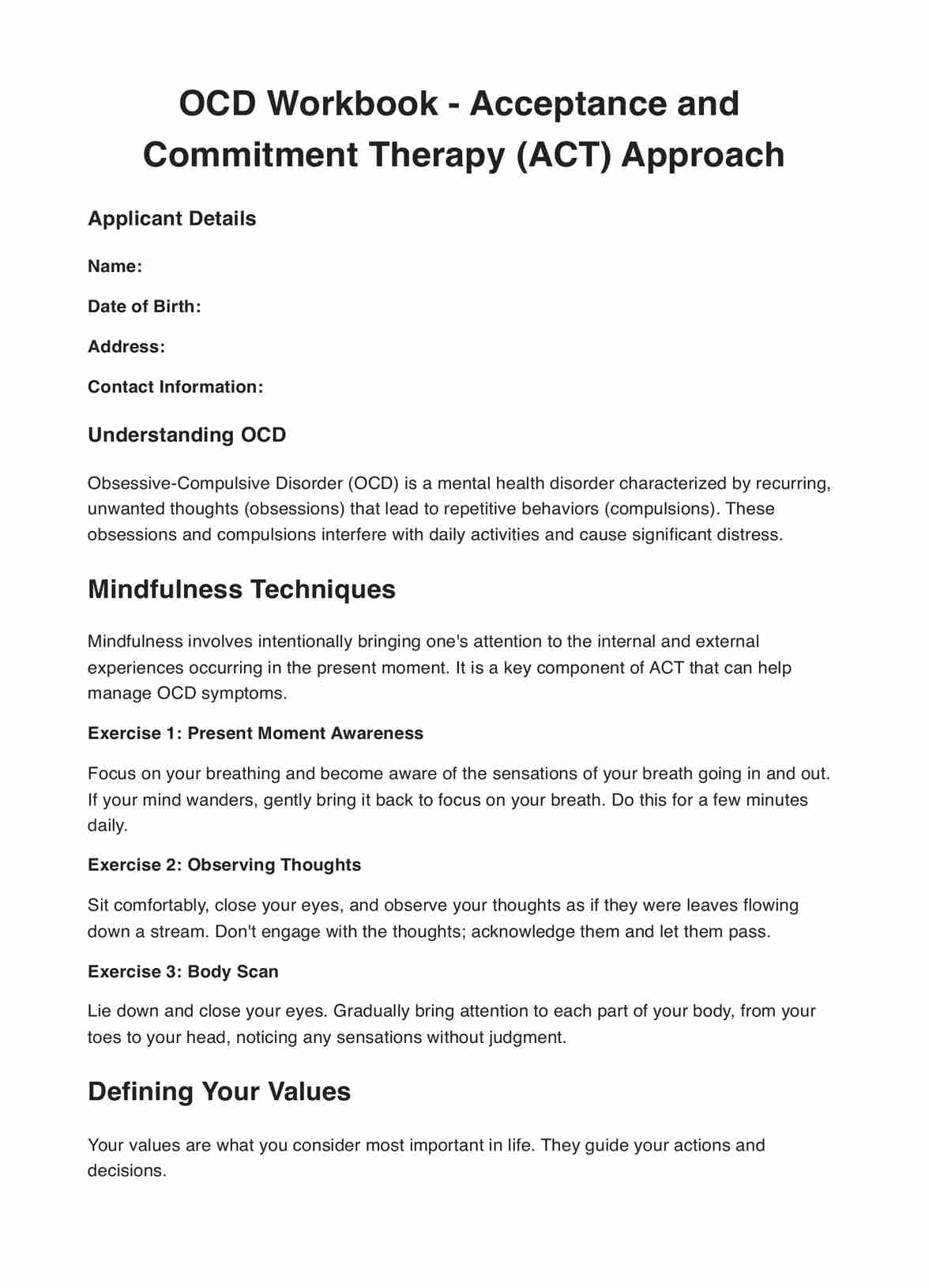Individuals with Obsessive-Compulsive Disorder use the OCD workbook to understand their symptoms better, learn new coping strategies, and monitor their progress. Mental health professionals such as psychologists, therapists, and counselors also use these workbooks to supplement therapeutic interventions, helping their clients practice new skills outside of therapy sessions.

OCD Workbook
Explore and manage your OCD symptoms with our OCD Workbook. Get access to a free PDF template and example now.
OCD Workbook Template
Commonly asked questions
The OCD workbook can be used at any point in a person's journey with OCD. It can be especially beneficial when actively managing OCD symptoms, during ongoing therapy as a supplemental tool, or even while waiting for professional treatment to begin. It provides structure and strategies, making managing OCD less overwhelming.
The OCD workbook is first used to help you identify your specific OCD symptoms. Next, it provides information to help you understand the root of your OCD. It then guides you through various techniques and strategies to manage your symptoms. These techniques include cognitive-behavioral approaches, mindfulness exercises, and exposure and response prevention strategies. The workbook also provides spaces to monitor your progress, which can be crucial for motivation and pattern identification.
EHR and practice management software
Get started for free
*No credit card required
Free
$0/usd
Unlimited clients
Telehealth
1GB of storage
Client portal text
Automated billing and online payments











